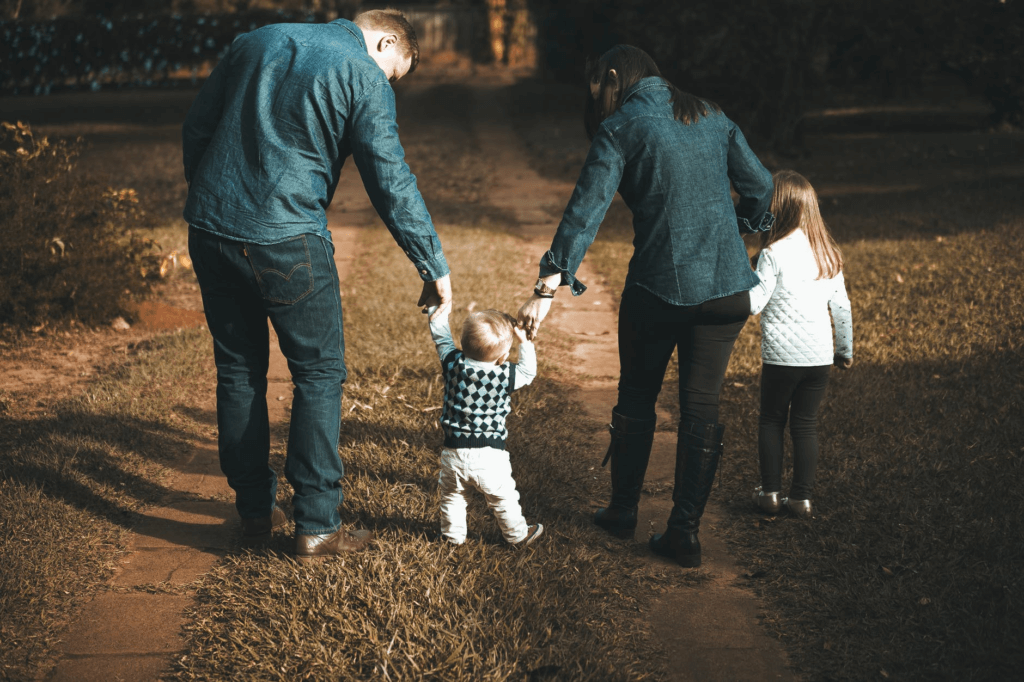
Article At Glance:
- Some individuals provoke intense adverse reactions, resulting in tension and conflicts, especially with those close to us.
- Strong reactions often come from traits we dislike in ourselves. Reflecting on these traits is crucial to resolving internal conflicts.
- Identify bothersome traits, recall when you’ve felt the same, show compassion for all, and use insights to improve interactions.
We all know that certain people bother us. You get that feeling in the back of your spine as they walk past you. It seems like everything they ever do is something wrong, almost like they have a sixth sense for pushing you off balance. These people tend to do these things over and over again. Worse yet is these people are often those we interact with most: our coworkers, kids, family, and/or partner…
How have we learned to deal with this? Sometimes you might get a temporary good feeling from being annoyed with someone. Wow, I really have it together; at least I don’t act like that person, you may have thought. But, does the relief from that judgment last for long? I would guess not.
Why do we have such big reactions to certain people, and how can we change them?
We are often taught to talk it out. This can make us feel better too, but sometimes it can be a more extended version of that initial response in our brains: word vomiting why we are so much “better” than this other person. Or forms of gossiping that do nothing to help the situation, and can belittle the people we are talking about. The question remains: why do we have such big reactions to certain people, and how can we change them?
Now, this is not always the answer to the question, but oftentimes I find (for myself and my clients) that it’s part of the answer. We are persistently annoyed by people who display traits that we dislike within ourselves. I know it’s not fun to hear that sometimes our perceived enemies are more like us than we care to admit, but oftentimes it’s the truth.
In the process of admitting this, you will find much more compassion for yourself and others. The negative energy you are carrying for this person in your heart can be transformed to give others (and yourself) positive energy. Trust me, it feels good to let go of the negativity you carry within yourself toward others, because eventually, it doesn’t just hurt them, it hurts you too.

Case Study: Jamie and Jesse have a breakthrough
So, how do we explore this? I will give an example of a family dynamic that plays out this concept. I have changed the stories below to reflect stories of clients, friends, and personal experiences, for confidentiality.
Family of Parent 1 (“Jamie”), Parent 2 (“Morgan”), Child/Sibling 1 (“Jesse”), and Child/Sibling 2 (“Shayne”):
Perhaps there’s a family of four: two parents (Jamie and Morgan) and two children (Jesse and Shayne). Perhaps Jamie continually gets frustrated with Jesse; there’s just something about them that they have zero tolerance for. Let’s say it’s how shy Jesse is. Jamie just wishes that Jamie would have more friends. Jamie worries that when Jesse grows up Jesse will be a “loner” and “Shayne will just always have to pick up the slack for Jesse.”
Let’s say Morgan encourages Jamie to back off, and that there’s nothing wrong with being an introvert. But Jamie, nonetheless, continues to harp on Jesse for being shy, sometimes bringing Shayne (a more outgoing child) as a comparison, “Why can’t you just be more like your sibling; they’re the one with all the friends.” This comparison makes Shayne uncomfortable, feeling like they are being put in the middle of the family tension.
Maybe you were more like one of the four characters in your family, and maybe you are enacting another one of the four characters in your current family or friendship group. We often change roles, for better or for worse. That’s why thoughts like, I will never become my mother are clichés. If we live unconsciously and passively, we have a decent chance at becoming the people we fear becoming the most.

How Conflict Affects Everyone
The conflict between Jamie and Jesse has a ripple effect on the whole family. In the family system Jesse is being labelled and treated as the “problem child.” Morgan is in a secondary conflict with Jamie because of the way Jamie treats Jesse. That causes tension in the authority figures in the house, which contributes to dysfunction in parenting. Another secondary conflict is between the siblings, Shayne and Jesse, which unfortunately was originated and propagated by Jamie. Shayne unfortunately may start to adapt Jamie’s view of Jesse, creating a rift between the two of them and stopping their potential to build a healthy sibling relationship. As in, the ripple effect of Jamie’s judgement of Jesse spreads across the whole family system.
Now, going back to why we sometimes have large reactions to people. The reason why the concept of looking for the behavior/thought/feeling within yourself that the person who is bothering you is exhibiting is so powerful, is that it can reduce tension and cause ripple effects in the family system to help reduce the tension in the house. It can also help you become more self-aware, helping you become a better person.
Looking for some support? You can schedule with a member of our team here.

Working Through the Projection
Jamie needs to look at why Jesse bothers them so much, as in, what behavior/thought/feeling is Jesse displaying that reminds Jamie of themself.
Oftentimes, if done with care and empathy by a therapist, Jamie can come to the realization that perhaps, as a kid, they felt that they couldn’t communicate well with other kids, and they consistently felt alone. Perhaps Jamie had less friends than the average child, and that insecurity is still sticking with them to this day.
Presently Jamie could feel anxiety with their coworkers, still, with the insecure child inside of themself. Perhaps when Jamie comes home, they would really like some time to themself, but they pressure themself to spend time with family because they want to be a good parent. Maybe Jamie also had a sibling, and Jamie was labelled the problem child in their own family of origin.
Additional Read: Anxiety In Teens: Powerful Strategies To Help Your Teen Beat Anxiety
Now, here is where the magic happens. Sometimes the realization is enough.
The act of Jamie realizing that much of the behaviors that drive them to the brink in Jesse are ones that they dislike most within themself can sometimes be enough to make a change and dissipate tension.
Jamie can work on accepting these behaviors/thoughts/feelings within themself and decide if they would like to change them. Jamie can communicate to Jesse that they see themself in Jesse, and that’s why they are worried about Jesse, using empathy rather than judgment. This can help Jesse feel heard, rather than scrutinized.

A thing to keep in mind is that realizing that we judge others harshly based on our own thoughts about ourselves can be a harsh thing to come to realize. Sometimes realizing this can be met with anger or impatience towards yourself. You must be equally compassionate with yourself as the person who is bothering you to make a helpful change.
The ripple effects of reducing this conflict can help Morgan feel relieved and that Morgan trusts Jamie more as a parent. Another ripple effect is that Shayne feels closer to Jesse and less angry with Jamie for comparing them. Shayne and Jesse could move on to create a lifelong healthy sibling bond.
Therapy (individual, couple, and family) can be a series of releases, acceptances, and changes of behaviors/thoughts/emotions that, when done over time, can help people enormously. This cycle of insight, symbolic death, and symbolic rebirth can help us transform into a truer and healthier version of ourselves.

Applying the framework to move past significant reactions and projection
This story could seem over-simplistic, but it is amazing how the framework of this happens in many combinations of people (families, couples, friends, coworkers) I have encountered. This can be a dynamic between you and another person, a system, a group (family, coworkers, friends), etc.
A way you can gauge if this is playing out in your life is to notice when you get really ticked off by someone or something, a feeling that sort of bites at you. Recognizing this trigger can become helpful in working through feelings of judgment toward others, and ultimately, toward yourself.
An important thing to remember is that in the process of exploring these concepts, you may get angry with yourself. You may not like what you find. Notice that reaction, and then let it go, noting it as a part of the process.
Exploring these parts of ourselves brings out the darkness, or the ugliness within ourselves because, at the end of the day, we all want to be good people. However, by ignoring the darkness within ourselves, we cannot truly find the light. If you continue to ignore these parts of yourself, you won’t be able to grow as a human. And what is life when you don’t grow?
Note: the concept I am writing about is adapted from my current conceptualization of Jung’s “shadow self.” However, becoming a Jungian analyst takes years of training, as well as years of the clinician’s own Jungian analysis. Therefore, I am not claiming an expertise regarding Jung; I am in admiration of much of his work.

Four Steps to Overcome Projections and Triggers
Here are four steps to utilize this concept in your life, to help you with those people who just won’t stop getting under your skin, and to move past and resolve those feelings:
(1)Write down the specific behaviors/thoughts/feelings of the person that bother you.
Is it their behavior, thought, or feeling? Be as specific as you can. Think of in what situations they occur, how often they happen, and how severe they are. Can you think of a turning point when you became bothered by this?
Read here: The Difference Between Feelings & Emotions
(2)Write down when you have experienced these thoughts/behaviors/feelings
If they don’t come up in your current life, think about your past experiences. Did you go through a period in your life when you acted more like this person?
Are you afraid of displaying these thoughts/behaviors/feelings?
For example, perhaps you often hold back your anger, and when this person displays anger, you have a really intense reaction. This could be because a part of you wishes you expressed your anger more, and seeing someone do it so fully on display can be jarring.
If this is true, think of ways you can display these thoughts/behaviors/feelings safely without hurting yourself or others in your life. Giving yourself space to let these tendencies go can be really powerful.
(3)Garner up some compassion for yourself and for the other person
Ideally, the insight you have about why this person just won’t stop driving you crazy will help you feel more empathy for them. Something to remember, is usually your reaction isn’t really about them; it’s about what you see in them, AKA projection.
(4)Use your insight to take action.
How would you like to interact with them in the future? Think about details such as what you would want the relationship to look like, and how you can make that happen. Sometimes this process can help you take the final plunge to cut a toxic relationship out of your life.

Conclusion
Remember compassion, compassion, compassion. We are all imperfect humans.
The behaviors/thoughts/feelings of other people are oftentimes what we don’t like within ourselves. The process of discovering this can be challenging, but it’s well worth the result. Especially now, in the world, we could use a bit more understanding and cutting as much unneeded stress from our lives as possible.
What would you like to hear about from our therapists? What are you looking for guidance with? At Best Therapies, we are committed to trying to help as many people as we can, because folx need it, right now. Write to us, and we will use your thoughts for future blog posts. Be well.


